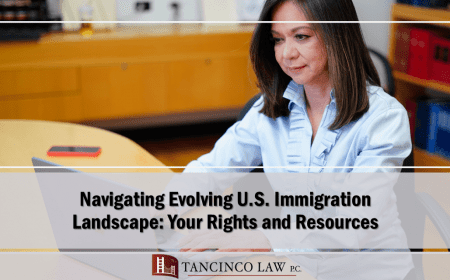Since last September, the number of hospitalized patients across the US has increased nearly every day. Since November 1, 2020, the number of people hospitalized with COVID-19 has doubled and since October 1, it has tripled. More than 1,000 hospitals in the US are “critically” short on staff.
Nurses and other medical staff are the driving force behind the American healthcare system. To focus on nurses, America’s 3 million nurses are the largest category of workers in our healthcare workforce. And while nursing is one of our country’s fastest-growing professions, the nursing profession is not growing fast enough – according to the Bureau of Labor Statistics, in the next two years, the US will see 1.2 million vacancies for registered nurses. By 2025, the nursing shortage will be twice as bad.
So, let’s look a bit more at the shortage, how it’s affecting our fight against the Covid-19 pandemic and how immigration can help.
The US healthcare worker shortage isn’t a new problem
Even before the Covid-19 pandemic slammed global healthcare systems, the US has been desperate for more nurses.
There is a shortage of nurses across the US and according to the American Association of Colleges of Nursing, the shortage is expected to intensify. The American workforce is rapidly aging and more and more baby boomers are retiring. One million of the 3.8 million registered nurses in the United States will leave the workforce between now and 2030.
But why is a profession that is well-respected and pays decently struggling to keep up with demand?
Blame it on the Baby Boomers! Today, there are more Americans over the age of 65 than at any other time in US history. In the next 20 years, one in five Americans will be a senior citizen, and by 2050, there will be 88.5 million Americans over the age of 65-years-old. Among these aging Americans are nurses! Right now, approximately one million registered nurses are older than 50, meaning that we can say goodbye to these healthcare workers as they enter retirement in the next 10 to 15 years.
The nursing education system has been struggling to keep up with the demand for new nurses. According to an American Association of Colleges of Nursing report, American nursing schools turned away 79,659 qualified applicants in 2012 simply due to lack of resources and instructors. So, as you can see, the American healthcare system was already under strain from a lack of qualified nurses.
Then the coronavirus pandemic reached our shores.
The healthcare worker shortage is impacting the COVID-19 vaccine roll-out
About a year ago, Covid-19 seemed like an issue far from America’s borders. Today, the virus has spread across the globe and more than 100 million infections have now been reported worldwide. The US has more Covid-19 cases than any other country, and our infections make up more than 25% of the total worldwide.
Since this time last year, doctors have gotten better at saving the lives of critically ill Covid-19 patients, but healthcare workers are overwhelmed and hospitals are crowded. Simply put, more than 40% of Americans live in areas where intensive care units are running out of space. These overburdened hospitals are dealing with exhausted nurses and doctors, and a shortage of experienced healthcare workers.
Right now, healthcare workers are not only responsible for sick Covid-19 patients, but also distributing vaccinations. The US vaccination campaign has gotten off to a slow start, with less than 20 million people getting their first dose by mid-January 2021. President Biden recently announced that the US will deliver enough doses to vaccinate 300 million Americans by the end of the summer or early fall, but we need trained personnel to drive what will be the largest vaccination effort in US history.
In places like Arizona — where the coronavirus is spreading faster than in almost any other state — 4 out of 5 doses haven’t been used because finding someone qualified to give the shots is difficult. Can you believe that?
As hospitals strain under the stress of the pandemic, many are wondering: how did we get here? How is it possible that US hospitals don’t have enough experienced nurses and doctors to treat Covid-19 patients and vaccinate the American public?
The good news is that the solution is simple: hire more foreign-trained nurses and other healthcare staff.
Foreign nurses are the solution to America’s healthcare woes
In the past, hospitals might have closed beds to address a shortage of nurses. During a pandemic, that option is not possible. But there’s a win-win solution – to hire nurses and other healthcare professionals from abroad.
Immigrants make up 18% of total US healthcare workers, but more specifically they are 22% of nursing assistants and 29% of physicians. Current US immigration policies have left hospitals across the country understaffed and ill-prepared to face the coronavirus pandemic. Even before Covid-19 hit our shores, we had a projected shortage of roughly 15,000 to 22,500 primary care doctors and over one million nurses.
Foreign-born doctors and nurses arrive in the US on H-1B, J-1, and EB-3 visas, but right now, denial rates for H-1B petitions have increased significantly, from 6% of applicants denied in 2015 to nearly 25% in 2020. EB-3 visas have also been down as much as 33% since 2015. These numbers are staggering when you consider that one-in-four direct-care workers are foreign-born.
These highly skilled healthcare workers are often able to immigrate to the US easily and hit the ground running at their new jobs. Legislation like the Healthcare Workforce Resilience Act (HWRA) — a bill aimed at increasing the number of available immigration spots for nurses and doctors that was introduced in May 2020 — would make it even easier for foreign nurses to immigrate to the US.
This bill was inspired by and created to face the COVID-19 pandemic, and if passed, would allow up to 25,000 immigrant visas to qualifying nurses and 15,000 immigrant visas to physicians, as well as their spouses and kids. This would be a game-changer for the current US healthcare system. For now, though, it’s been stalled.
Plus, many foreign health workers have invaluable experience dealing with infectious disease epidemics such as SARS, Ebola, or HIV in other countries and are ready and able to take jobs at American hospitals. Recently, the State Department issued guidance calling for foreign medical professionals with approved visas or certificates of eligibility for exchange visitor programs to get expedited processing to come to the US. They are especially prioritizing health care pros who have experience “working to treat or mitigate the effects of Covid-19.”
While a new regulatory landscape around immigration law might change forms, processes, and applications, one thing stays the same: the demand for skilled, experienced international nurses and others as well as an easy and streamlined way of getting them into the US.
Foreign nurses will help to alleviate our strained healthcare system, but they might need a little help getting here.
Tancinco Law helps hospitals, healthcare facilities and healthcare staffing companies bring skilled nurses and healthcare professionals into the US
As hospitals struggle to handle the most recent COVID-19 surge, hospital and other healthcare facility administrators are not only worrying about beds or ventilators in short supply but also finding enough healthcare workers to care for the sick. Fortunately, there is a highly-skilled workforce of foreign-educated doctors, nurses, and other health practitioners ready to step in and help.
It’s vital that we welcome more internationally-trained nurses to the US. In the midst of the continuing COVID-19 global pandemic, our country needs more experienced nurses than ever, and we’re working day in and day out to help build a stronger, healthier community, one nurse at a time.
Tancinco Law helps hospitals, healthcare facilities, and healthcare staffing companies manage every step of the immigration process when hiring foreign-trained nurses and other healthcare professionals. Tancinco Law was founded by Filipino immigrants, and we’ve been helping Filipinos nurses and many others immigrate to the US for decades. We are closely connected to the immigrant community, we’re experts in the healthcare visa process, and can be a true partner – not just an outside immigration law firm.
If you’re a hospital or healthcare system and you’re interested in learning more about how Tancinco Law can help you strengthen your staff, check out our website. And if you’re a healthcare professional interested in working in the US, reach out to us today!




